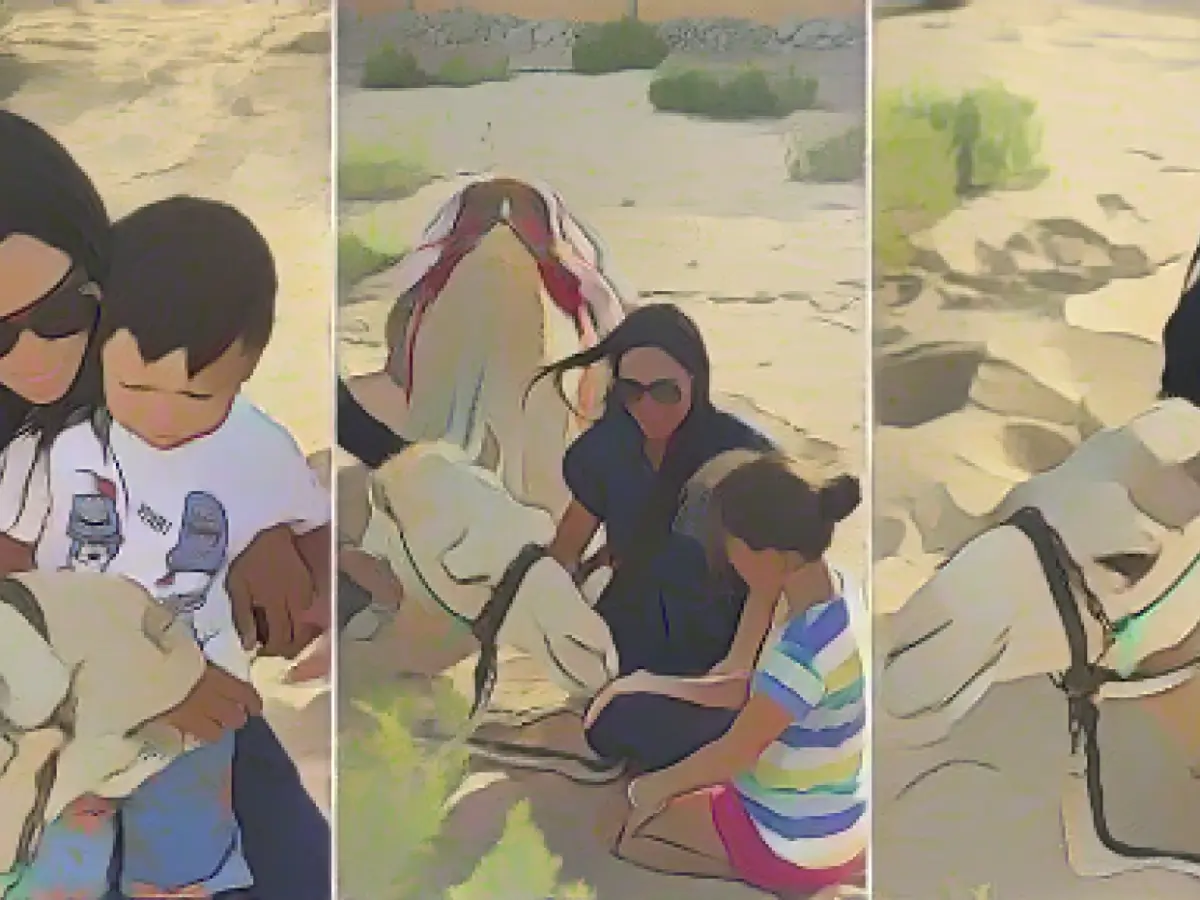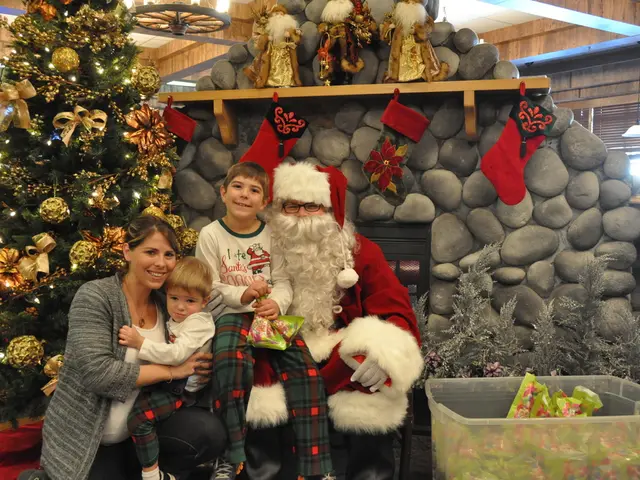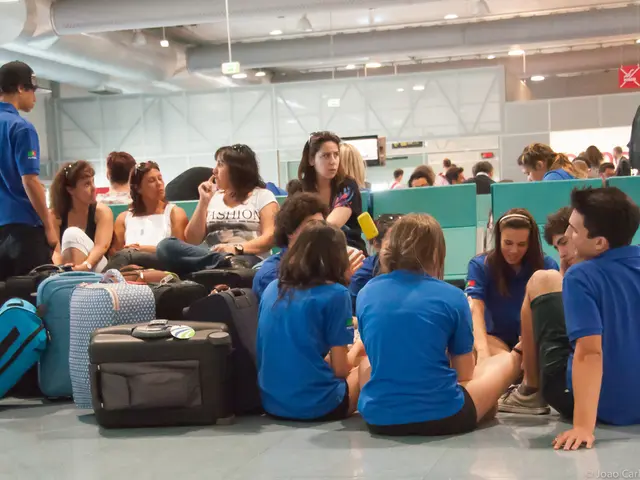Unveiling the Enchanting World of Ezba: A Modern Revelation of Emirati Tradition in Abu Dhabi
Ezba, an enduring Emirati tradition, has played a significant role in the lives of nomadic Bedouin tribes in Abu Dhabi for generations. Avoiding confusion, Ezba is not a farm, but a place where families raised livestock (domestic desert animals such as sheep, goats, and camels) and passed down their skills to younger generations.
While modernization has gradually wiped out the genuine need for Ezba, as many Emiratis have moved into urban centers across the UAE, the government has made a strong effort to preserve remnants of this era in the last five to ten years.
Today, this era is presented to visitors as an authentic way to experience the early lifestyle and resilient spirit of the Emirati people before the discovery of oil.
"With the modern world surrounding us, the government of the United Arab Emirates is committed to ensuring that this tradition does not fade away," asserted Abdulazeez Manea, a rising voice in the younger generation of Emiratis. "Ezba offers visitors to Abu Dhabi an authentic local cultural experience."
At just 30 years old, Manea leads a budding movement of young Emiratis who are determined to maintain their traditional way of life.
"It's a way to connect with history and culture, so Ezba is all about this connection," he explained.
Historical Significance and Symbolism
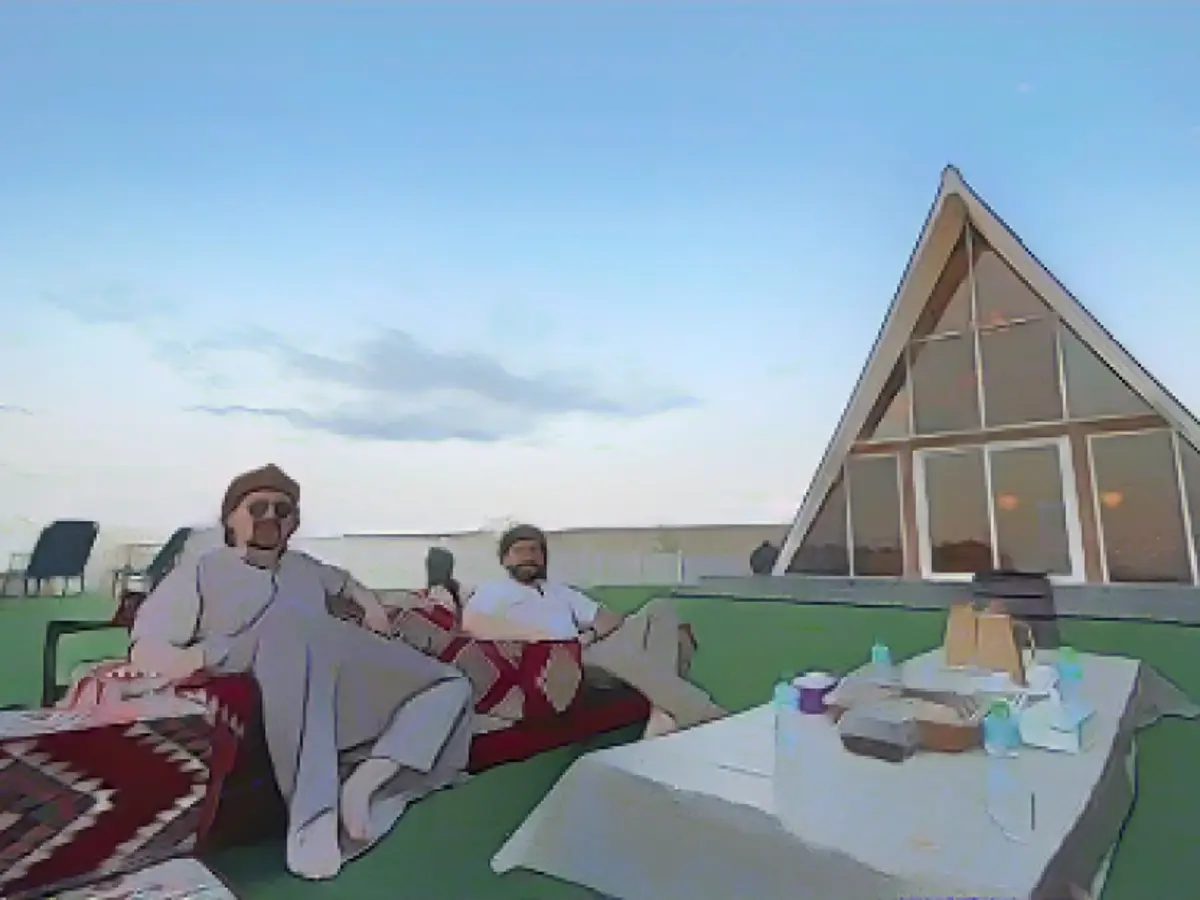
Manea promotes Ezba on Airbnb and invites tourists and expats to join him on excursions to his hometown Ezba, nestled among the sand dunes surrounding the Al-Wathba area, approximately an hour's drive from Abu Dhabi's city center.
His guests arrive in a typical Emirati Nissan Patrol 4x4, which skillfully traverses the dunes, offering an exhilarating experience for his guests. The adventure to this remote location, previously only accessible by camel or horse, was once the only means of transportation for the Bedouin people navigating the harsh desert.
Day tourists often join Manea for sunset strolls along the beach, where he shares tales woven into a rich oral tradition passed down through generations. They learn about the significance of the Majlis or gathering place and the role that dates and coffee play as emblems of the generosity of the Ezba culture and the Emirates.
Visitors can even partake in camel milking, ride on camels, and interact with them. They will also gain insights into the care of the enduring and resilient Dromedary camels that served as the sole mode of transportation in the desert for the Bedouin people.
Manea elaborated that before the discovery of oil in the UAE, a family's wealth was measured by the number of camels they owned.
"A person who belonged to the middle class possessed 40 camels, while a wealthy person was considered to have 200 to 300 camels," he said. "Wealth was not monetary; it was measured in camels."
Visitors can delve deeper into the personal histories of the people in the Emirates, from traditional attire to personal welcomes. The narrative unfolds from survival in the harsh desert to the rise of one of the most prosperous communities in the region.
Barefoot on the Beach
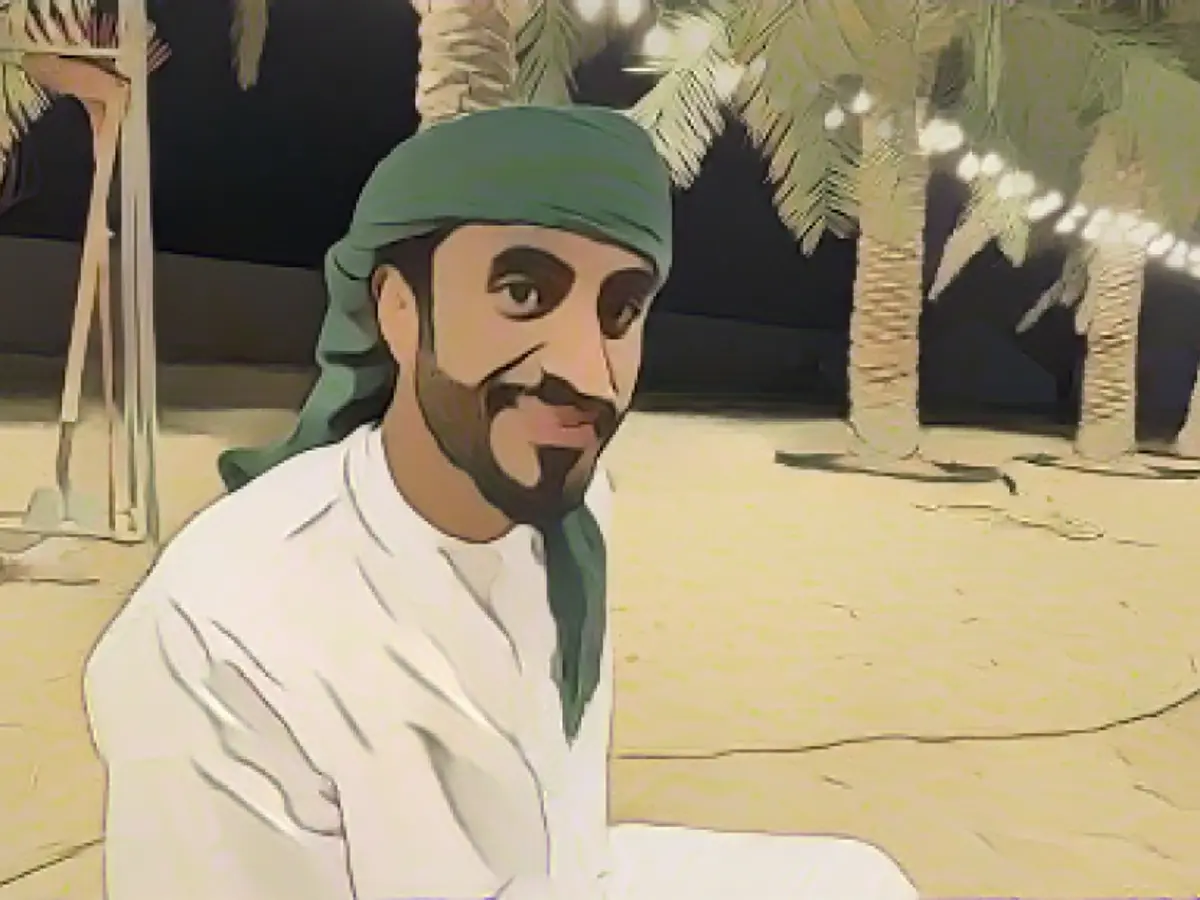
Travelers visiting Ezba discover the enchanting solitude of the surrounding desert and can try their hand at fire-making or learn various skills. For many, this is an unparalleled opportunity to glimpse into the enigmatic world of the UAE.
The contrast between the hustle and bustle of urban life in Abu Dhabi and the desolate tranquility of the Ezba area is striking.
"Everyone yearns for this, and we can see how effective it is, not just for the tourists who come to experience it, but also for families," said Manea.
"Children are no longer engrossed in their devices, and people can truly connect and build meaningful relationships. With more and more individuals engaging in Ezba, so too does social interaction increase."
Beyond the allure for tourists, Emirati families find this resurgence of a cherished tradition a powerful bond with their roots.
"I can see that the Ezba community is particularly active during the winter, especially among children, who play with the animals and explore the sand dunes near the farm, learning about the plant life, insects, and survival skills that have proven vital throughout history," Manea added.
"Even though we have an abundance of delightful attractions, it's now the preferred destination for Emiratis to visit, especially for special occasions. 'Walking barefoot on the beach' is a magical experience."
In the Heart of the Mystery
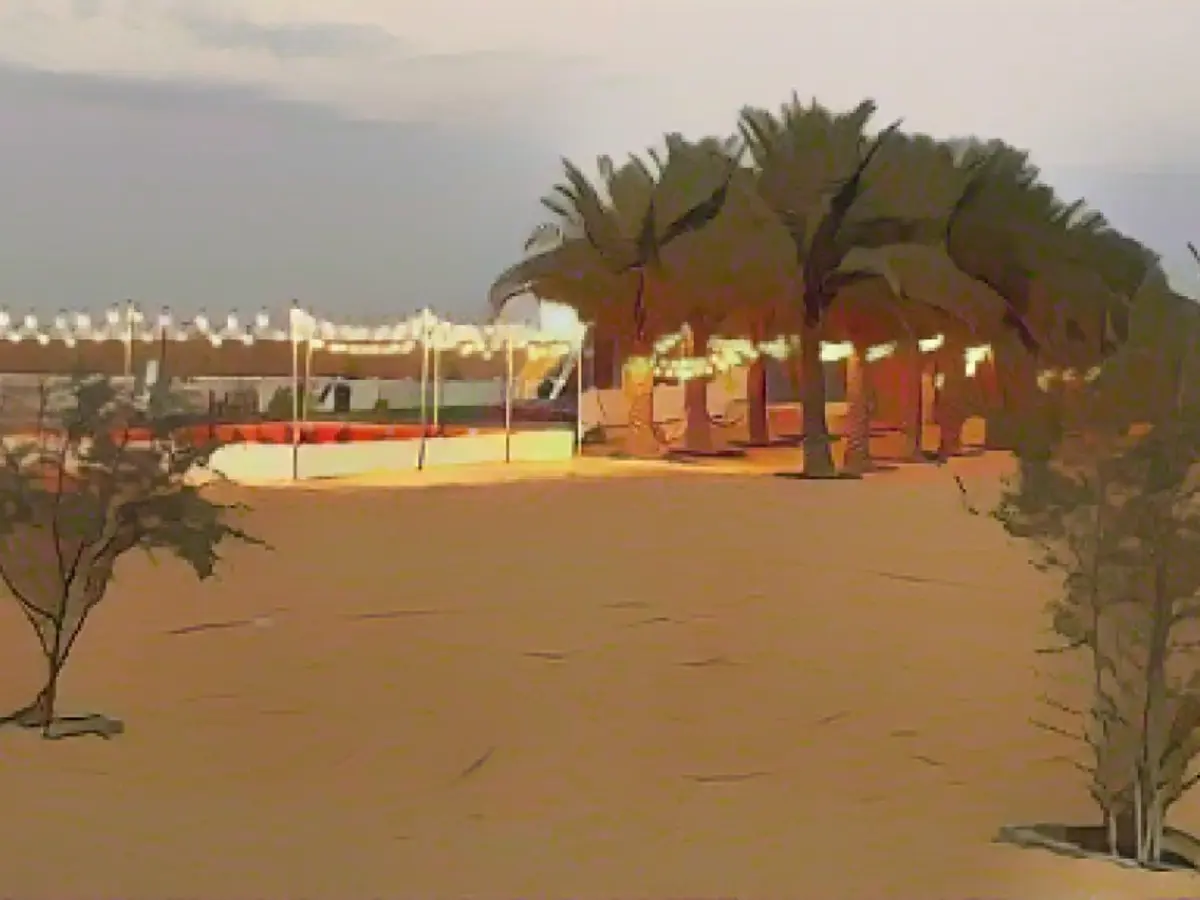
The opening of these private retreats is a result of government investments in infrastructure that now supplies water and electricity to previously remote areas.
Manea feels compelled to share this experience with others.
"For me, as an Emirati, it feels like an obligation to share this experience with others. 'I am an Emirati, a storyteller, who has received formal diplomatic and tour guide training through Airbnb,'" he explained.
"The tourism industry faces a challenge because there are a lack of Emiratis who can interact with tourists. No one can tell this story better than I do. Ezba is essentially the last form of authentic cultural immersion that remains."
"People say that it's often challenging for them to find these authentic cultural experiences, but this is an opportunity to connect with the spirit of the Emirati culture, history, identity, hospitality, and much more."
Close to two dozen members of the Manea family are now involved, helping tourists, expats, and visitors interact with these people who remain a mystery to many Emiratis, as Emiratis make up only 10-10% of the UAE's population (15% when including non-Emirati expatriates).
"My nephews, nieces, brothers, sisters, elders, they all participate now," he said with a smile. "I try to share this message with the younger family members, showing that it's important to build bridges with people from around the world, and to show the camaraderie and culture of the UAE. Our home was always open, so modern lifestyles may have changed, but we can still send a message: Our doors will never close."
"No matter how many international friends one meets in cafes and malls, it never touches them as deeply as visiting an Ezba does," he said.
"For the Emirati Fatma al Mehairi, a member of Etihad Airways' Abu Dhabi management team, this offering of authentic cultural encounters is 'priceless' and an enriching experience not only for Emiratis and expats living in the country, but also for visitors looking to understand the unique characteristics and values of the Emirates."
"The key is to tell the story of the United Arab Emirates through the voices of its Emiratis," she noted.
"Incorporating Emirati locals into the tourism experience adds richness to the experience. We have a lot to share and to offer. The UAE is a young nation that has grown rapidly, but it's just as important to share our heritage with the world, while signaling that we will continue to honor our past as we advance into the future."
Manea indicated that teaching young Emiratis and foreigners about the Emirati lifestyle ensures that these valuable traditions continue.
"It shows young people that we can enjoy the advantages of modern life without losing the wisdom gained by abandoning these practices.
"The longer I spent there, the more I learned about myself, my past, my family, and my culture. It became clear that camels are precious, and the effort to maintain them is enormous. They must be preserved. This indirect learning must reach the next generation."
